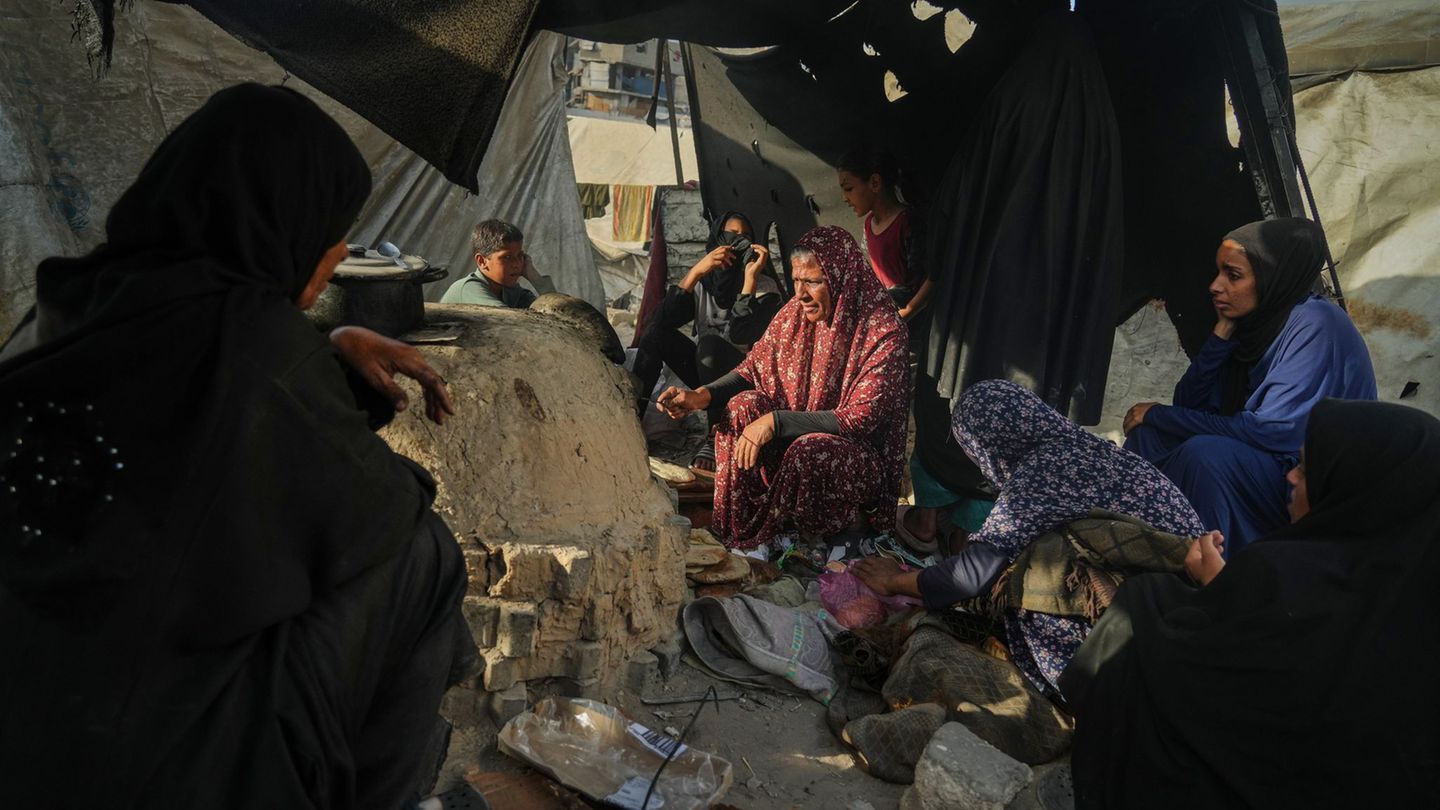Full praise came on Tuesday only from the ranks of the ÖVP and the Greens. Trade unions, the Chamber of Labor and Volkshilfe acknowledged that the government was finally taking action, but saw blemishes and omissions – because taxes on food were not reduced and energy price caps were not imposed. Caritas and Diakonie were quite satisfied. Some countries announced additional measures.
What’s your opinion? Vote!
“Some points succeeded, but also disadvantages”
“We welcome the fact that the pressure we have built up for relief measures has finally prompted the federal government to act. Some points have been successful, but overall the package also has disadvantages even at first glance,” said ÖGB President Wolfgang Katzian – and stated that the ÖGB “must continue to put pressure on permanent relief measures that reach people”. Because the package is partly “questionable in terms of distribution policy” and the short-term measures consist “almost exclusively of one-off payments”. However, these would not slow down the rate of inflation and would not relieve people in the long term. The ÖGB continues to demand rent regulation, a reduction in VAT on groceries and mineral oil tax or higher taxation of excess profits from energy companies.
“Measures that will have a very negative effect on working people”
GPA chairman Barbare Teiber also identified “blemishes” in the package – as well as “measures that will have a very negative effect on working people in the long term”. She is disappointed that there is no reduction in VAT and no price cap for energy and calls for a millionaire tax. Teiber sharply criticized the reduction in non-wage labor costs: It was “pure clientelism that will have no effect on prices”. “Clearing out” the family burden equalization fund and at the same time increasing benefits for families is absurd – and reducing the accident insurance contribution is “fatal”.
Chamber of Labor misses “real “price-down effect”
From the point of view of the Chamber of Labour, the package will “help to cushion the consequences of high inflation. What is missing, however, are measures that have a real ‘price-down effect’ and measures that would really strengthen the welfare state and make it poverty-proof”, President Renate Anderl also missed a reduction in VAT or a price cap. The effect of the one-off payments will “quickly fizzle out” – and the acute poverty problem in the lower third of income will not be solved – through improvements in unemployment benefits, emergency assistance and social assistance.
Volkshilfe: One-time payments are not enough for many
They fell mixed reactions too of the aid organizations: Volkshilfe recognized the “quite considerable” total volume and that many people would be relieved. Among them, however, are “very many” who are not suffering from inflation – while there is no sustainable support for people and children who are acutely poverty-stricken. Because one-time payments would not be enough for them, from the point of view of Volkshilfe, an increase in unemployment benefits, social assistance and compensatory allowance during the year would have been necessary.
Caritas welcomed package
Caritas’ comment sounded more positive: “This package was the right one and – if it is implemented quickly – it will come at the right time,” said President Michael Landau, welcoming the fact that individual steps are to be taken in the summer. Whether the measures are suitable as a – urgently needed – rescue package, “we will first see,” he noted, however – and missed the fundamental reform of social assistance and the creation of basic child security. The Diakonie was pleased about the value adjustment for social benefits.
SPÖ and FPÖ criticized
The opposition in the National Council showed no great enthusiasm for the government measures. The SPÖ and FPÖ, in particular, criticized quite sharply, NEOS were half-satisfied.
This video is disabled
Please activate the categories Performance Cookies and Functional cookies in your cookie settings to view this item. My cookie settings
Chamber of Commerce highly satisfied
The Chamber of Commerce was very satisfied: essential demands of the social partners to relieve companies and households would be implemented. “The government is taking the right steps before the summer, which will have an impact in the short and medium term,” said WKÖ President Harald Mahrer. A lot of praise came from the ranks of the ÖVP: the unions and the ÖVP women praised the measures taken by the government under the leadership of ÖVP Chancellor Karl Nehammer. Family Minister Susanne Raab (ÖVP) announced details of the “historic relief package for families” at the Council of Ministers on Wednesday.
Additional help in Vienna, Lower Austria and Vorarlberg
In addition to red Vienna – which already presented the expansion of energy support on Tuesday – two black federal states also announced additional inflation aid. Governor Johanna Mikl-Leitner will present a Lower Austria package after the summer. Vorarlberg’s governor Markus Wallner wants to set further accents by next week, namely in the area of housing assistance (not a one-time payment, but a structural change), the family and heating cost allowance and the children’s standard rates in social assistance.
The Viennese Greens were “delighted”: The package of measures was a “big hit” and “real support for all Austrians”, praised party chairmen Judith Pühringer and Peter Kraus in a broadcast.
Source: Nachrichten




